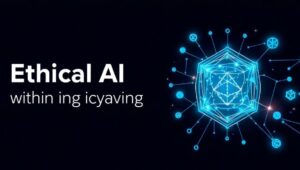June 3, 2025
The “Internet of Everything”: Where Do We Draw the Line? (2028 Debate)
The “Internet of Everything”: Where Do We Draw the Line? (2028 Debate) The year is 2028. The “Internet of Everything” (IoE) has moved beyond a buzzword and become a tangible reality. Our homes, vehicles, cities, and even our bodies are increasingly interconnected through a vast network of sensors, devices, and data streams. But as we integrate technology into every facet of our lives, a crucial question arises: Where do we draw the line? The Promise of a Hyper-Connected World The IoE promises unprecedented efficiency, convenience, and innovation. Imagine: Smart Homes: Appliances that anticipate your needs, energy grids that optimize consumption,












